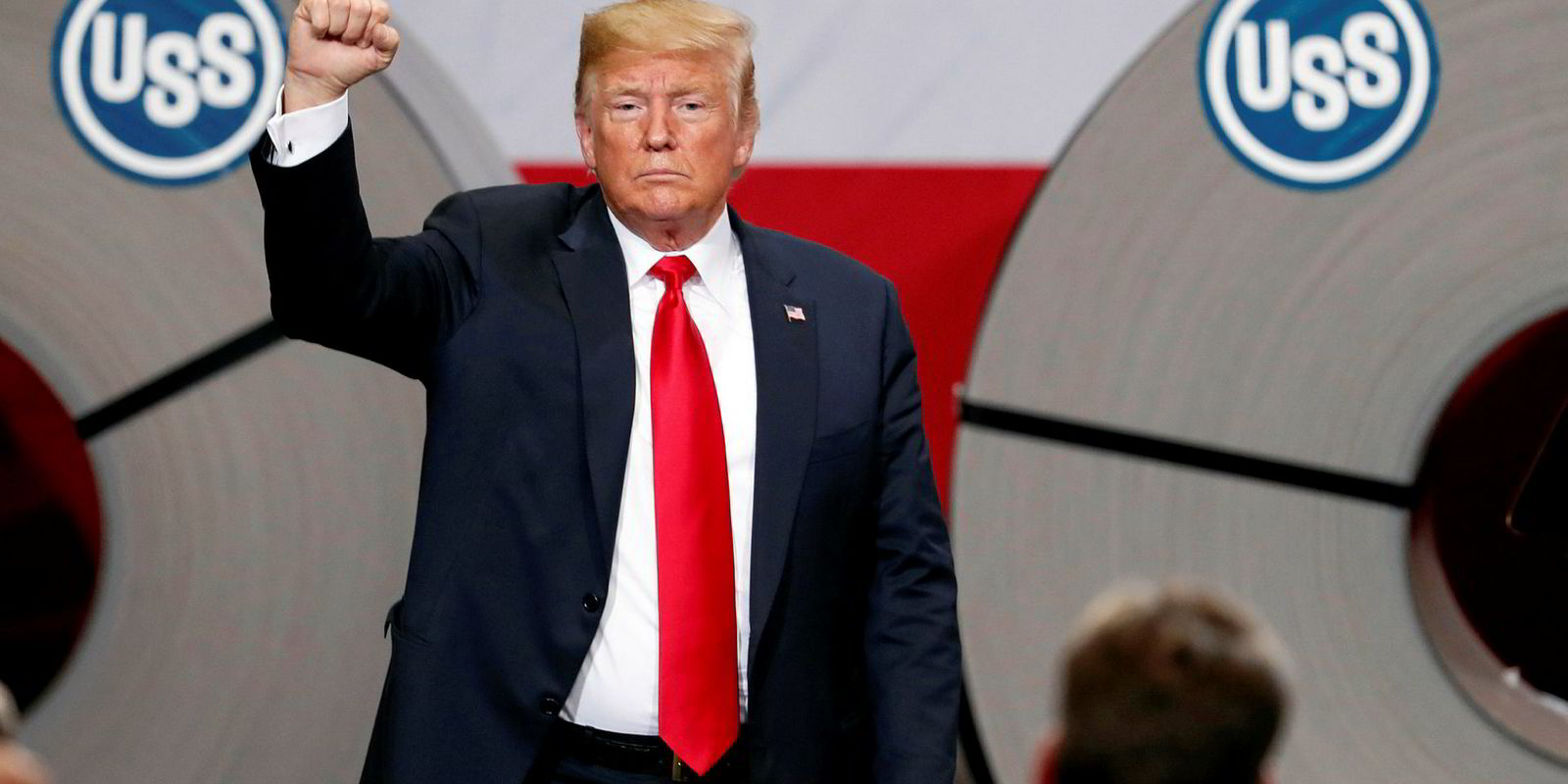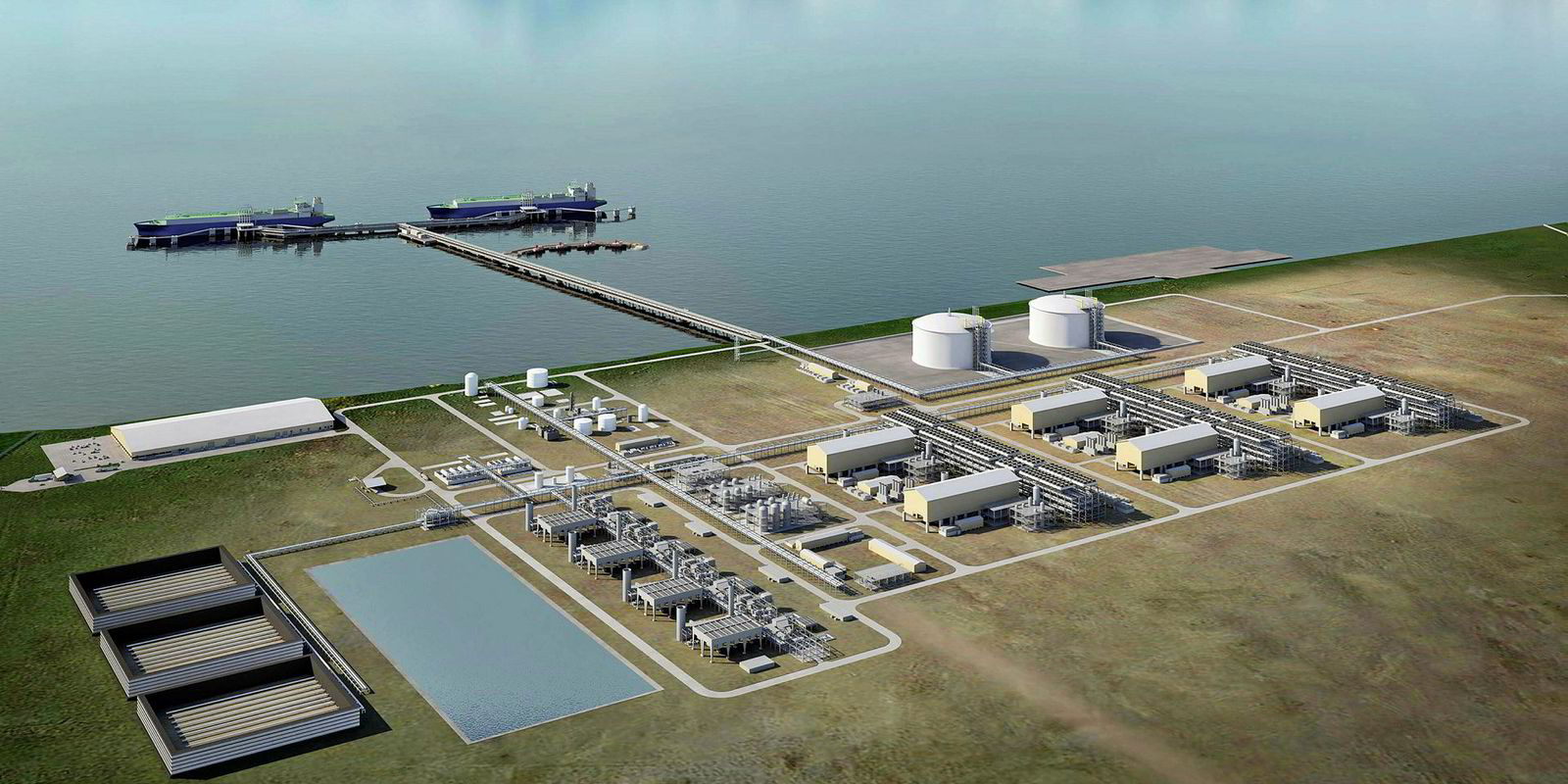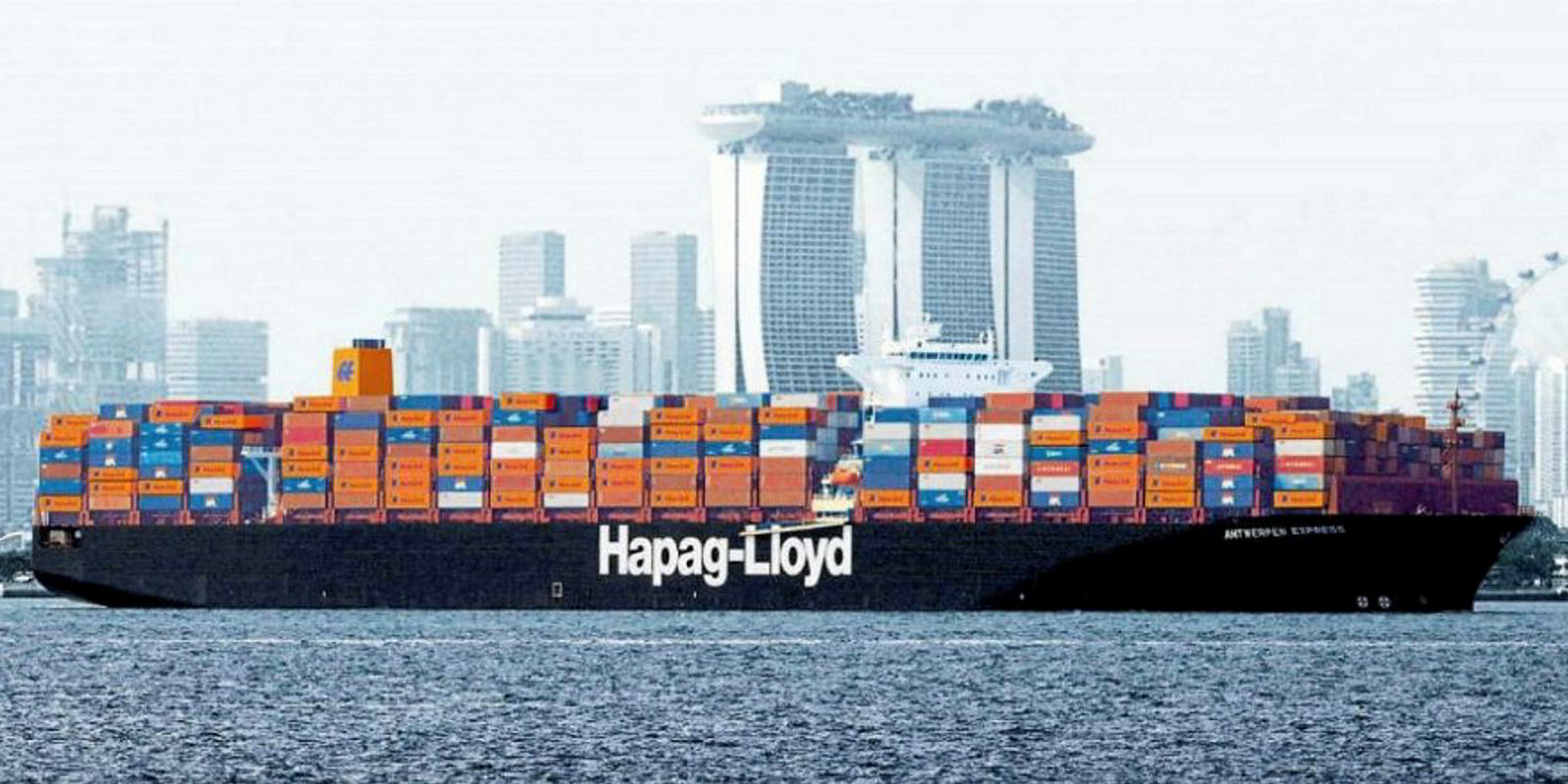The trouble with starting wars is that you cannot dictate how they will progress or when they will end. The US stand-off with China is already showing this, with Unipec suspending crude shipments from the US.
The White House has escalated tensions by saying it will increase tariffs on an extra $200bn-worth of Chinese goods.
Beijing in return has threatened to impose a 25% tariff on US LNG imports, and it plans to target crude oil products and a raft of other commodities.
Energy was one of the sectors that President Donald Trump hoped could be used to slim down the trade deficit at the root of the bilateral tension.
Unipec, the world’s biggest charterer of VLCCs and the trading arm of Chinese state-owned oil group Sinopec, had expected to almost triple its US shipments to 300,000 barrels per day (bpd) by the end of 2018.
Now China’s retreat from the American market has led to speculation that the figure will fall below 200,000 bpd within weeks.
Dip in prices
The price of West Texas Intermediate, the American benchmark crude, has already dipped, reflecting the reduction in demand. The US will find other buyers for its oil, but that takes time — and probably discounts.
There are indications that Chinese importers are substituting Middle East and West Africa crudes. That means fewer tonne miles, which is bad for the tanker market. The US Gulf-to-China voyage takes between 40 and 45 days, as opposed to 30 to 35 days from the Middle East.

A possible bright spot is that China may buy more oil from Brazil, which involves longer journey times.
Meanwhile, LNG shipments from the US to China are being cut. They were running at around seven a month in January. This slowed to two in June and one in July; now brokers say no US LNG exports are booked for the Chinese market in September.
There are also retaliatory tariffs on US soyabean movements to China, sending prices on the futures market down 20%.
American farmers, who are heavily dependent on the huge Chinese market, say they cannot produce profitably at current prices.
Shipowners say the slump in the trade of soyabean, steel and other dry bulk commodities is already affecting the price of vessels.
Shipowners say the slump in the trade of soyabean, steel and other dry bulk commodities is already affecting the price of vessels
The overall dry bulk freight market is looking better on the back of an improved supply/demand balance, but an all-out trade war between China and the US would be, to quote Diana Shipping in last week’s TradeWinds, “a very, very huge disaster”.
Damage to commercial needs
Disputes like this damage business sentiment and can force new trading patterns to emerge, which can increase rather than decrease voyage miles — as in the case of Chinese imports of oil from Brazil. But once a serious spat starts, national pride and domestic political considerations can override rational commercial needs.
Trump always claimed it was easy to win a trade war and insisted last weekend on social media that his tariffs were “working big time”.
The first casualty in any war is truth, but in today's mixed-up world you could argue that truth is hard to find even in peacetime.
What is true is that Chinese stock markets have fallen by 27% over the past eight months and the renminbi has reduced in value. By contrast, Wall Street continues to perform strongly overall.
But Beijing has accused Washington of trying to “crush China’s economic sovereignty” and said it was prepared for a “protracted war”.
This is not good news for anyone.
As the American Petroleum Institute — another major supporter of Trump, at least in regard to his domestic energy policies — acknowledged: “American natural gas and oil companies already hit by US tariffs on industrial products and specialty steel essential to our industry will now be faced with Chinese tariffs on critical US exports, impacting American jobs...
“We urge the administration to end these trade policies that work against our own energy interests and threaten our shared goal of maximizing US energy production and US energy exports.”
Or as Italian shipbroking house Banchero Costa put it more bluntly: “In the case of crude oil, the trade war will sure hurt the Americans more than it does China.”
The fact is that trade wars are easy to start and hard to finish. They also hurt everyone.





